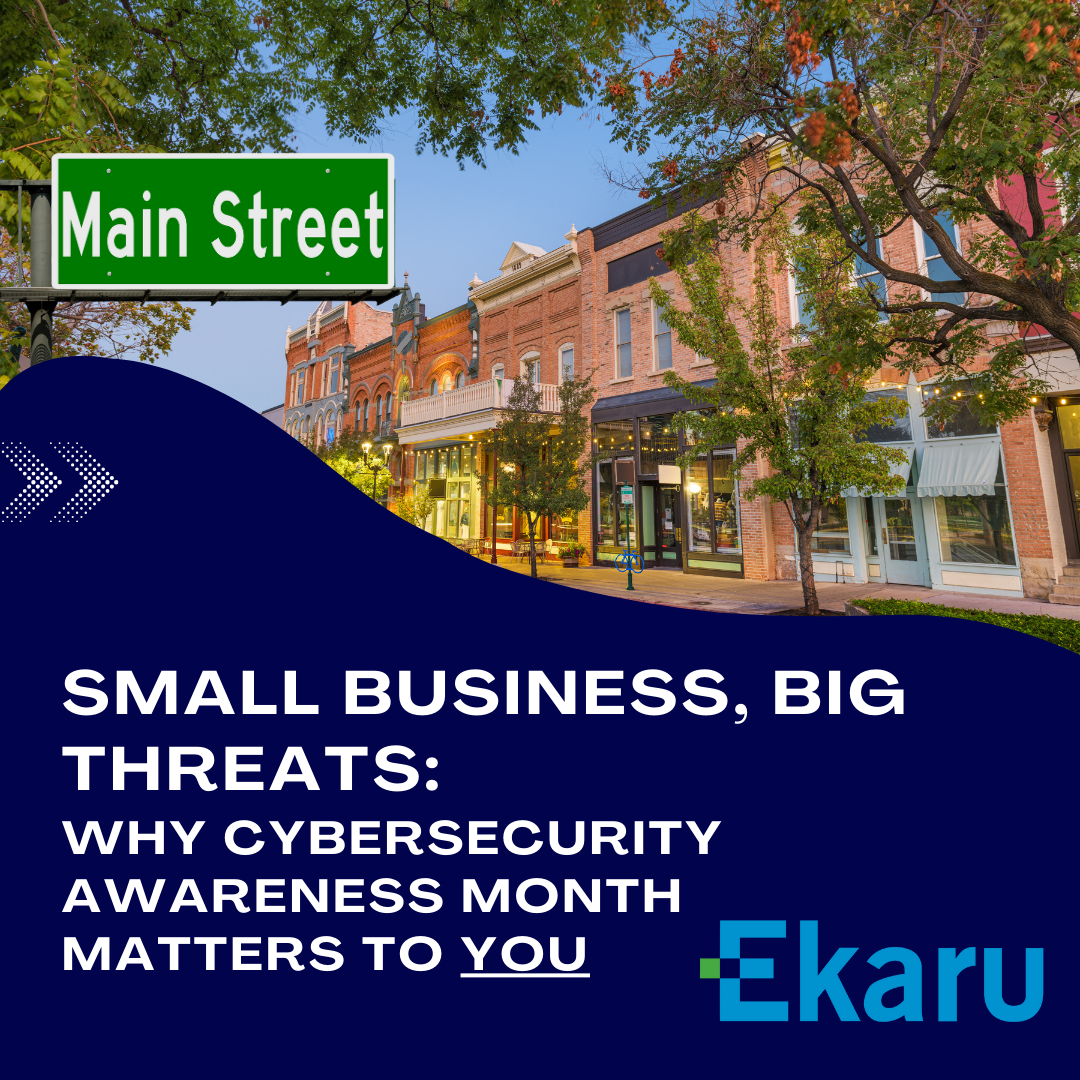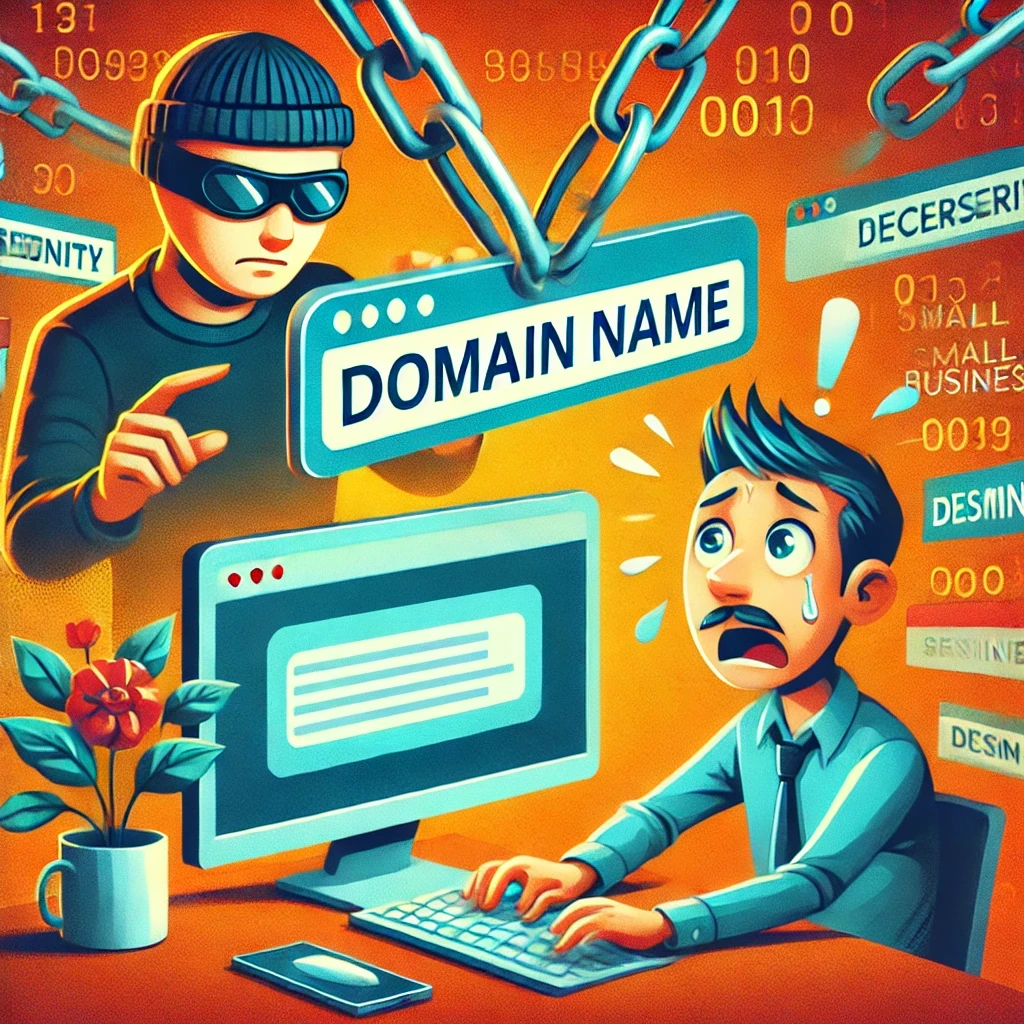Cybersecurity threats are a major concern for small businesses, especially through phishing emails and ransomware attacks. No! You're not too small. These harmful strategies can result in severe outcomes, including monetary setbacks, business interruptions, and harm to your company's reputation.
Read MoreTechnology Advisor Blog
Five Small Business Cybersecurity Threats You Can't Ignore
Posted by Ann Westerheim on 10/18/24 4:12 PM
Small Business, Big Threats: Why Cybersecurity Awareness Month Matters to You
Posted by Ann Westerheim on 10/7/24 4:44 PM
Cybersecurity threats create unique challenges for small businesses. With smaller budgets and potentially weaker defenses, these companies often struggle to protect themselves against widespread attacks. October is Cybersecurity Awareness Month and this is a great time to step up your cybersecurity awareness training with your team!
Read MoreTags: Cybersecurity, email scams, cybersecurity, cybersecurity training
When Cybersecurity Feels Annoying: The Role of Web Filtering and DNS Protection
Posted by Ann Westerheim on 8/12/24 5:00 PM
Maybe you can relate to this: Your local business finally takes the plunge and starts getting serious about cybersecurity and suddenly things feel like they just got a lot harder for you. It’s the end of a long workday, and you go online to search for your favorite whiskey you want to enjoy over the weekend, and a security warning pops up that the site is blocked by your security. The website may be blocked because it falls into the broad category of “drugs and alcohol” but you’re not looking to abuse any substances, you’re just looking forward to enjoying a class of fine whiskey.
Read MoreTags: cybersecurity, cybersecurity training, DNS Protection, Web Filtering
When Security Updates Cause a Tech Meltdown: Why Your Business Still Needs Robust Cybersecurity
Posted by Ann Westerheim on 7/22/24 2:54 PM
On Friday July 19, 2024, the world woke up to a major tech outage as a routine update from security software vendor CrowdStrike inadvertently caused computers to crash worldwide. Flights were cancelled, hospitals were shut down, and banking was disrupted. CrowdStrike clarified early in the day that the incident was NOT a cyber attack, but rather a (really) bad update, and a fix was available pretty quickly. Still, undoing the damage was a major effort. What can we learn from this?
Read MoreTags: cybersecurity, CrowdStrike
Protect Your Business: How to Spot and Prevent Domain Spoofing Scams
Posted by Ann Westerheim on 6/28/24 9:39 AM
The more you know about the various types of cyber scams out there, the safer you'll be online. We recently received a question from someone in our community who's doing a lot of hiring and reported that someone had posted a job on a spoofed website - "domaincareers.com" instead of "domain.com". Why do scammers do this? They're trying to trick people into providing personal information like a social security number and possibly financial information so they can steal it. It is true that before you start a job, you'll need to give your employer your social security number and you'll probably want to set up direct deposit of a paycheck, but if a company is asking for this information too early, its a scam. Both employers and potential employees need to know about these scams.
Read MoreTags: domain name, cybersecurity
Business continuity planning helps your business operate nearly seamlessly in the event of a natural disaster, critical hardware malfunction, or even a cybersecurity breach. These events can cripple or even destroy your organization. But when you take precautions now before such things happen, you save yourself massive headaches down the road.
Read MoreTags: cybersecurity, business continuity plan
Boston Data Security Services: Why Data Protection Matters
Posted by Ann Westerheim on 6/21/24 2:16 PM
Data security in Boston, and other major business centers, is becoming a pillar of business readiness, as leaders look to proactively protect their business data.
Read MoreTags: cybersecurity, cybersecurity training, Cyber Insurance
Ransomware protection for your Boston area business can save you from going out of business. What would you do if your files and essential data suddenly became inaccessible, stolen, and sold on the dark web? Could you operate critical business functions without this data?
Read MoreTags: ransomware, ransomware recovery, ransomware protection, Boston Ransomware
Virtual CIO Services: Hiring a Competent Boston Area VCIO
Posted by Ann Westerheim on 5/3/24 1:40 PM
Hiring an experienced full-time Chief Information Officer can be expensive, especially for small businesses. Fortunately, using virtual CIO services, or hiring a VCIO, can be just as effective. Besides saving businesses money, a virtual CIO can still help companies achieve the benefits of an efficient, high-functioning IT network while also helping establish safeguards to prevent cybersecurity threats.
Read MoreCybersecurity Training for Board of Directors: A Full Guide
Posted by Ann Westerheim on 4/12/24 3:04 PM
This guide will explain not only why cybersecurity training for board of directors is important, but also give you the critical questions that boards should be asking their CEOs and themselves to address their organization's cyber defenses.
Read MoreTags: Cybersecurity training for a board of directors
.png)








.jpg)
